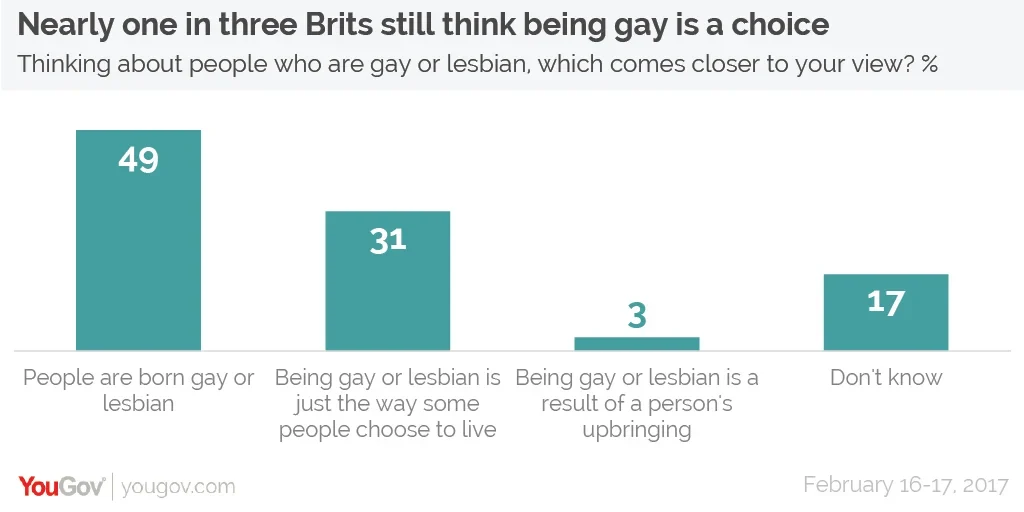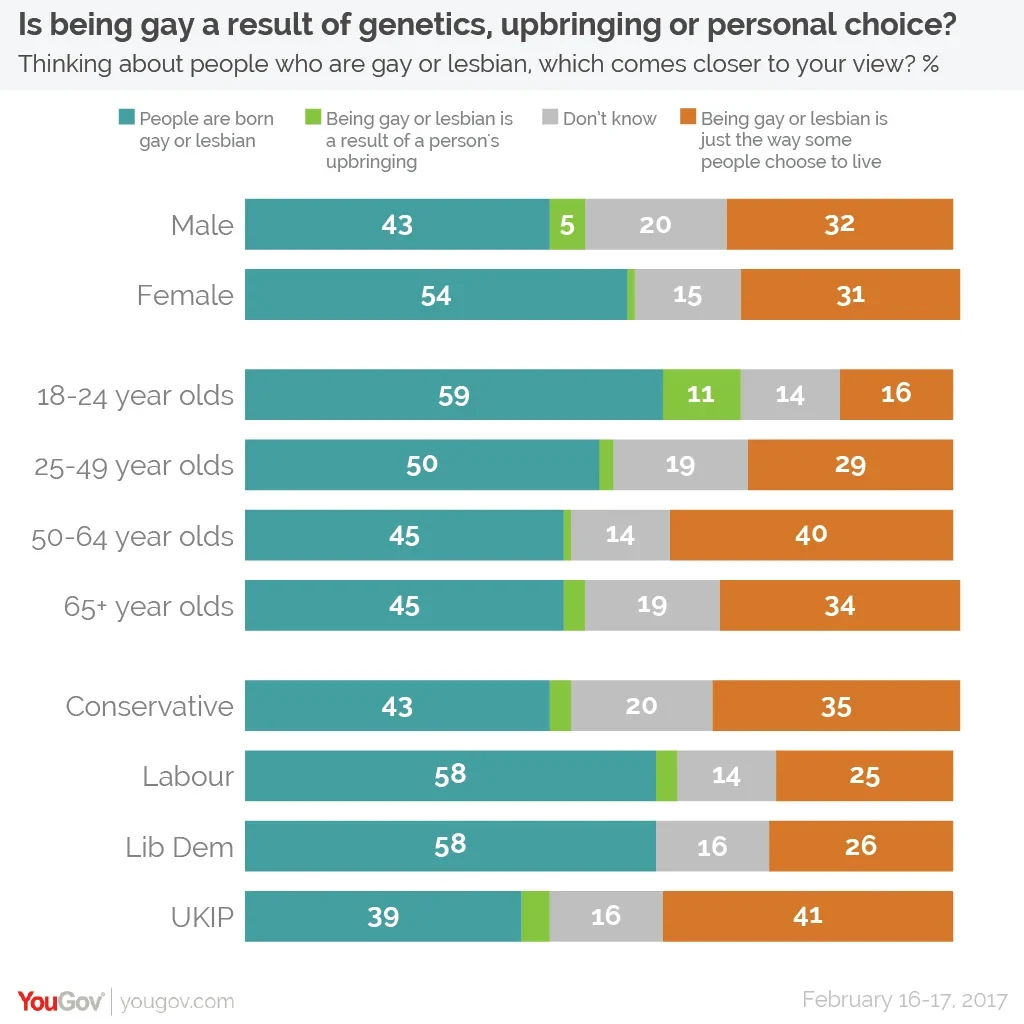New YouGov research finds that whilst just under half of Britons think that people are born gay, 31% believe homosexuality is a choice
Despite the weight of scientific evidence suggesting that homosexuality is not a choice, new research by YouGov finds that nearly one in three Britons (31%) still believe that being gay or lesbian is just the way some people choose to live.
By contrast, just under half of Britons (49%) believe that people are born gay or lesbian, whilst a further 3% believe that it is the result of a person’s upbringing. The remaining 17% don’t know one way or the other.

The results come in the same week that Hamisi Kigwangalla, the Tanzanian health minister, defended government threats to publish the names of suspected homosexuals in the East African nation. Homosexual acts are illegal in Tanzania and can be punished by up to 30 years in jail.
A key determinant of attitudes towards homosexuality is often whether or not people believe being gay is a choice. Kigwangalla argued on Twitter that homosexuality did not scientifically exist and was a social construct.
The weight of scientific evidence would seem to contradict the health minister, however. Alan Sanders, a scientist who conducted one of the largest studies on homosexuality of its kind, says that complex traits such as sexual orientation depend on multiple factors, both genetic and environmental. Recent research, he says, “erodes the notion that sexual orientation is a choice”.
YouGov asked the same question in the United States in 2014, which found a much more even split among Americans between those who believe that people are born gay (41%) and those who think it is a choice (37%). Earlier this month the signing of an executive order by Donald Trump rolling back LGBT rights in the workplace was reportedly only averted by the intervention of the president's daughter Ivanka and her husband, Jared Kushner.
Attitudes by demographic
In the UK study, a person’s age was a key factor in determining their attitudes towards the issue. Under-25s are the most likely to believe that people are born gay (59%), dropping to 50% for 25-49 year olds and down again to 45% for those aged 50 or over.

Similarly, just 16% of 18-24 year olds think that being gay is a choice, compared to 40% of 50-64 year olds and 34% of 65+ year olds. Interestingly, 11% of under-25s think that being gay is a result of a person’s upbringing – a far higher proportion than any other group in British society.
There are also distinct gender differences. Whilst men and women are about equally likely to think being gay is a choice (32% vs 31%), women are much more likely to think people are born gay (54% vs 43%).
The survey finds that those who voted Labour or Lib Dem in 2015 are the most likely to say people are born gay (both 58%), and the least likely to believe it is a choice (25% and 26% respectively). Conservative voters are much less likely to believe people are born gay (43%), but are still more likely to do so than think people choose to be gay (35%).
UKIP voters, by contrast, were more likely to think that being gay is a choice (41%) than being the way people are born (39%) – the only group across British society to do so. UKIP voters’ attitudes to homosexuality likely reflect the fact that UKIP voters are disproportionately more likely to be older, male and working class.
Photo: iStockphoto








